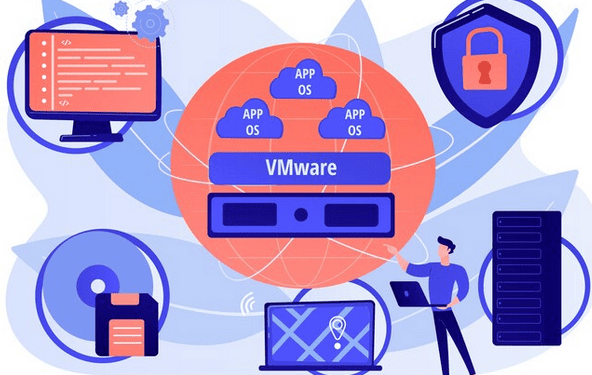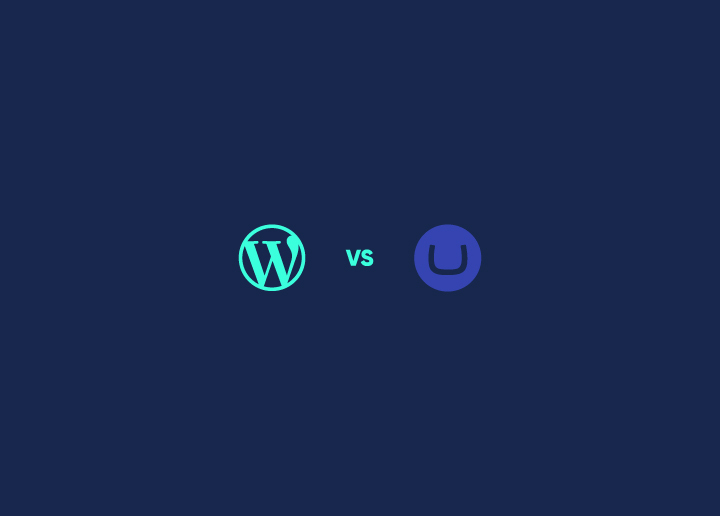Have you ever considered self-hosting your videos to maintain full control over your content? While it may seem logical, self-hosting videos can lead to numerous challenges and drawbacks that can negatively impact your website’s performance, visibility, and revenue generation. This blog post uncovers the top reasons to avoid hosting your own videos and explores alternative solutions for a better video hosting experience.
Contents
ToggleThe Dangers of Self-Hosting Videos

Venturing into self-hosted videos comes with various potential pitfalls, including:
- Bandwidth consumption and limited storage space.
- Technical issues.
- Inconsistent playback quality.
- Restrictions on customization.
- Potential drop in website visibility and traffic.
However, these problems can be circumvented by leveraging third-party platforms for video hosting. This allows you to concentrate on crafting content that captivates your audience.
These challenges impact your website’s performance and raise security and privacy issues, including piracy and data protection compliance. Financial factors like escalating hosting fees and maintenance costs could also strain your budget. In addition, the labor and time needed to manage self-hosted videos might ultimately prove more burdensome than beneficial, given the likely difficulties in managing video files and maintaining the system.
Read: How To Lazy Load Images And Videos In WordPress
Bandwidth Consumption
One of the most significant concerns when self-hosting videos is bandwidth consumption. HD video content requires considerable bandwidth, which can lead to slow loading times and potential website crashes. With every viewer consuming bandwidth, even a small surge in traffic can strain your server, affecting the overall performance of your website.
On the other hand, third-party video hosting platforms can efficiently manage bandwidth consumption, guaranteeing your audience a seamless and uninterrupted viewing experience.
Limited Storage Space
Another challenge with self-hosting videos is the limited storage space on your server. High-quality videos have large file sizes, which can quickly fill up the allocated storage and potentially lead to website suspension or termination by your hosting provider. Moreover, as your video library grows, you may find yourself constantly upgrading your storage plan, resulting in increased hosting costs.
Using third-party video hosting platforms can help resolve the storage problem, offering scalable solutions that adapt to the growth of your video collection.
Technical Challenges of Video Hosting

Hosting videos is likely to present several technical challenges, such as:
- The necessity for multiple file formats and mobile compatibility.
- Creating and managing several versions of each video file due to the various video formats supported by different web browsers and devices.
- It is time-consuming, and larger files can further consume your server resources.
Turning to third-party video hosting platforms can aid in surmounting these technical hurdles and streamline the delivery of top-tier video content for your audience.
Multiple File Formats
Managing multiple video file formats is a significant challenge when self-hosting videos. Different web browsers support different formats, such as MP4, WebM, and MPEG-4/H.264. Consequently, you’ll need to convert your videos into multiple formats to ensure compatibility and seamless playback across all browsers. This conversion process can result in increased file sizes, consuming more of your server’s resources and potentially affecting website performance.
Embracing third-party video hosting platforms can free you from the complications of handling multiple file formats and guarantee a uniform viewing experience for your audience, all while offering ease of use and the ability to embed videos.
Mobile Compatibility
The increasing use of mobile devices has made mobile compatibility an essential aspect of video hosting. To provide an optimal viewing experience on different devices, you’ll need to create multiple video files in various sizes and formats for efficient streaming. This process can be time-consuming and resource-intensive.
Using third-party video hosting platforms allows you to take advantage of adaptive bitrate streaming. This technology automatically tweaks the video quality according to the viewer’s internet connection and device capabilities. Thus, ensuring a smooth and consistent viewing experience on all devices without the need for manual video file management.
Read more: The Difference Between A Mobile Site And A Responsive Site
Video Player Considerations
Choosing a video player for your self-hosted videos can also present challenges. Inconsistent playback quality and customization limitations can hamper the user experience and make it difficult to maintain a professional appearance for your content.
Moreover, self-hosted videos may suffer from:
- Varying playback quality across different devices and browsers.
- Slow loading times and limited playback controls.
- Lack of support for captions and subtitles.
All of these factors can negatively impact user engagement and the overall success of your video content.
In contrast, third-party video hosting platforms generally provide contemporary, customizable video players that guarantee high-quality playback on all browsers and devices. These platforms also have advanced features and integrations that can elevate the user experience and contribute to your branding and marketing objectives.
Inconsistent Playback Quality
Self-hosting videos can result in inconsistent playback quality due to factors such as server performance, bandwidth consumption, and file format compatibility. This inconsistency can lead to a negative user experience, as viewers may encounter buffering, pixelation, or other playback issues. Hosting your videos on third-party platforms guarantees a consistent, high-quality playback experience for your audience, irrespective of their device or browser.
Customization Limitations
Customizing the appearance and functionality of a self-hosted video player can be a complex and time-consuming task. You need to significantly customize the video player to match your branding and website design to create a professional and consistent look for your video content.
Conversely, third-party video hosting platforms typically offer various customization options, facilitating a seamless and engaging video experience for your viewers, even when using the same video across different platforms.
Loss of Visibility and Traffic
Hosting videos on your own server can result in a loss of visibility and traffic, as popular video hosting platforms like YouTube and Vimeo offer built-in social sharing features and search engine optimization benefits that can boost the visibility of your content. By forgoing these platforms, you may miss out on the opportunity to tap into their vast user base and drive organic search traffic to your website.
Moreover, search engines might not readily discover self-hosted videos, impacting your search rankings and overall visibility. For optimal reach and impact of your video content, consider hosting your videos on well-known third-party platforms that offer improved visibility, social sharing features, and SEO advantages.
Social Sharing Features
Third-party platforms like YouTube offer built-in social sharing features that can significantly increase your video content’s visibility and reach. Users can easily share videos with their networks, boosting the chances of your content going viral and attracting more viewers.
Conversely, self-hosted videos might lack robust social sharing capabilities, thereby limiting their potential for organic traffic growth. By capitalizing on the social sharing features offered by popular video hosting platforms, you can enhance your content’s visibility and attract more traffic to your website.
Search Engine Optimization
Search engine optimization (SEO) is crucial in driving organic traffic to your website. Self-hosted videos may not be as easily discoverable by search engines, affecting your website’s search rankings and overall visibility
In contrast, videos hosted on popular platforms are more likely to be indexed by search engines. This visibility drives more traffic to your website. Hosting your videos on third-party platforms also lets you benefit from their inherent SEO advantages, ensuring your content is exposed to a broader audience.
Read: Top 5 White-Label SEO Service Providers 2023
Need Help With Search Engine Optimization?
We provide extensive SEO solutions from on-page and off-page SEO to technical and video SEO. To learn more about our SEO services.
Security and Privacy Concerns

When it comes to self-hosting videos, security and privacy concerns should not be overlooked. Hosting videos on your own server can expose your content to piracy and illegal redistribution risks. Data protection compliance is another crucial aspect to consider when self-hosting videos, as you need to ensure that any personal data you collect and store is managed securely in accordance with data protection laws.
Employing third-party video hosting platforms can alleviate these security and privacy worries, as these platforms often come equipped with advanced security features and encryption to protect your content. Opting for a reliable, secure video hosting solution helps protect your content and adhere to data protection regulations.
Piracy and Illegal Redistribution
Self-hosting videos increase the risk of piracy and illegal redistribution, as unauthorized users can easily access and download your content. Once your videos are copied and shared on file-sharing sites, controlling their distribution and enforcing copyright becomes challenging. By choosing to use a third party for hosting your videos, you reduce the risk of piracy and shield your content from unauthorized access and distribution.
Data Protection Compliance
Ensuring data protection compliance can be challenging when hosting videos on your server. You are responsible for managing and storing personal data in accordance with data protection laws, such as the Video Privacy Protection Act (VPPA) and the General Data Protection Regulation (GDPR). Relying on third-party video hosting platforms prioritizing data protection and compliance allows you to focus on crafting engaging content without the concern of potential legal repercussions.
Read: Best WordPress Security Checklist
Financial Implications
Self-hosting videos can also have financial implications, including increased hosting fees and maintenance costs. Hosting large video files can increase fees due to the bandwidth and storage requirements. Moreover, maintaining a self-hosted video solution can be costly and time-consuming, as you’ll need to invest in regular updates, software patches, and server maintenance.
Conversely, third-party video hosting platforms provide scalable pricing plans and features, aiding in more effective cost management. Choosing a dependable video hosting solution allows you to concentrate on producing high-quality content without the stress of rising costs.
Increased Hosting Fees
High-quality videos have larger file sizes, which can quickly consume your allocated storage and bandwidth, potentially leading to extra charges from your hosting provider. Choosing third-party video hosting platforms allows you to take advantage of their scalable storage and bandwidth solutions, reducing the impact on your hosting fees.
Maintenance Costs
Maintaining a self-hosted video solution can be costly and time-consuming. The maintenance tasks and associated costs can quickly accumulate with every new video added to your media library. On the other hand, third-party video hosting platforms usually take care of maintenance tasks for you.
Read: Best WordPress Maintenance Service Providers
Limited Analytics and Insights

One of the disadvantages of self-hosting videos is the limited availability of analytics and insights. Self-hosted video solutions lack the in-depth analytics third-party platforms provide, hindering your ability to make data-driven decisions and improve your video strategy.
Furthermore, gauging user engagement with self-hosted videos can be difficult due to the absence of real-time video engagement data and sophisticated analytics features. Utilizing third-party video hosting platforms grants you access to extensive analytics and insights, aiding in optimizing your video content for improved results.
Lack of In-Depth Analytics
Self-hosting videos can limit your access to in-depth analytics and without comprehensive analytics, you may struggle to understand how your target audience is interacting with your content and identify areas for improvement. Third-party video hosting platforms, on the other hand, offer advanced analytics and tracking features. Thereby, providing valuable insights into user engagement and helping you optimize your video strategy.
Difficulty in Measuring Engagement
Measuring user engagement metrics with self-hosted videos can be challenging due to the limited data and insights. Without real-time engagement data, it becomes difficult to assess the effectiveness of your strategy and make informed decisions.
By hosting your videos on 3rd party platforms, you can benefit from their advanced analytics and insights, enabling you to measure user engagement more effectively and optimize your content for better results.
Reduced Monetization Opportunities
Another drawback of self-hosting videos is the reduced monetization opportunities. Self-hosted videos may not offer the same ad revenue-sharing opportunities as popular video hosting platforms like YouTube. Additionally, implementing a subscription-based model for self-hosted videos can be complex and time-consuming, potentially limiting your revenue potential.
Capitalizing on third-party video hosting platforms allows you to use their inherent monetization options and boost your revenue potential. These platforms offer a variety of monetization models, including ad revenue sharing and subscription-based models, offering you increased opportunities to earn income from your video content.
Ad Revenue Sharing
Self-hosted videos may not provide the same ad revenue-sharing opportunities as popular video hosting platforms like YouTube and Vimeo. These platforms have built-in advertising networks and large user bases, which can lead to higher monetization potential. Hosting your videos on third-party platforms lets you take advantage of their ad revenue-sharing programs and enhance your earnings from your video content.
Subscription-Based Models
Implementing a subscription-based model for your self-hosted videos can be time-consuming. Developing and maintaining a subscription platform also requires significant effort, technical expertise, and resources.
Conversely, third-party video hosting platforms often come equipped with built-in subscription models, simplifying your content’s monetization and generating recurring revenue. Utilizing these platforms lets you concentrate on crafting 10x content and expanding your subscriber base without worrying about managing a subscription model’s technical elements.
Read: Google’s Updated Version Of Helpful Content Update
Time and Effort Required
The time and effort required to manage and maintain self-hosted videos can be significant. Managing large video files and ensuring compatibility across devices and browsers can be time-consuming. Additionally, regular maintenance & updates are necessary to keep your self-hosted video solution running smoothly, further adding to the time and effort required.
Choosing third-party video hosting platforms or WordPress plugins can conserve significant time and effort that would otherwise be expended on managing and maintaining your self-hosted video solution. These alternatives provide a more streamlined and efficient approach to video hosting.
Video File Management
Managing large video files and ensuring compatibility across different devices and browsers can be time-consuming and resource-intensive when self-hosting videos. Converting videos into multiple formats, compressing them for efficient streaming, and organizing them on your server are just a few of the tasks involved in managing your video files.
Here, using third-party video hosting platforms simplifies video file management and lets you easily upload videos without any hassle.
Ongoing Maintenance
Regular maintenance and updates, crucial to keeping your self-hosted video solution running smoothly and securely, should be performed monthly. Tasks such as monitoring server performance, applying software updates and patches, and troubleshooting technical issues can be time-consuming and require specialized skills.
Choosing third-party video hosting platforms or WordPress video plugins reduces the time and effort dedicated to ongoing maintenance, ensuring a more efficient and reliable video hosting solution.
Further reading: Best WordPress Image Optimization Plugins
Alternative Solutions

Given the numerous challenges associated with self-hosting videos, it’s worth considering alternative solutions, such as third-party video hosting platforms and WordPress video plugins. These alternatives can help you overcome the drawbacks of self-hosting while allowing you to showcase your videos on your website.
Third-Party Video Hosting Site and Platforms
Third-party video hosting platforms offer a wide range of features and benefits, making them a better choice for hosting your videos. These platforms provide:
- Advanced analytics and social sharing features.
- Customizable video players.
- Built-in monetization options.
This makes them a more comprehensive solution than self-hosting. Hosting videos on these platforms guarantees a consistent, high-quality viewing experience for your audience while you benefit from the diverse features these platforms offer.
WordPress Video Plugins
WordPress video plugins like Jetpack VideoPress and Presto Video Player can simplify the process of adding and hosting videos on your website. These plugins offer a more streamlined solution without the complexities associated with self-hosting. They also integrate seamlessly with your WordPress website, allowing you to easily manage & display video content.
Summary
In conclusion, self-hosting videos presents numerous challenges and drawbacks that can negatively impact your website’s performance, visibility, and revenue generation. By considering alternative solutions like third-party video hosting platforms and WordPress video plugins, you can overcome these obstacles and ensure a consistent, high-quality viewing experience for your audience. Ultimately, the choice to self-host your videos should be carefully weighed against the potential risks and benefits, with a focus on providing the best possible experience for your viewers.
Frequently Asked Questions
Self-hosting can be costly and time-consuming, as maintenance requires knowledge and ongoing effort. Furthermore, technicians to provide technical support may have to be hired, whereas third-party video hosting platforms include such support in their subscriptions.
Hosting your videos on YouTube is the best solution as it eliminates concerns for server bandwidth and storage space. It also allows for instant conversion and can even yield additional traffic. This is especially true if you do not have a streaming server or high bandwidth on your own server.
Hosting videos on YouTube can be more reliable for web visitors due to easy compatibility and is ideal for content creators looking to build a fanbase. However, hosting videos on their own website may be the better option for businesses seeking to convert viewers to customers.
There are a few reasons why someone might not use a hosted platform for their videos. These include the cost of video hosting, lack of control over the platform, and limited customization options. Additionally, some platforms may not provide the necessary bandwidth for larger video files, making them difficult to stream. Finally, some platforms may not offer the level of security needed to protect the videos from piracy or unauthorized access.
Yes, you can. Either embed them or use a plugin such as Jetpack VideoPress. It is recommended that you use embedding over uploading directly to your website for better results.


















